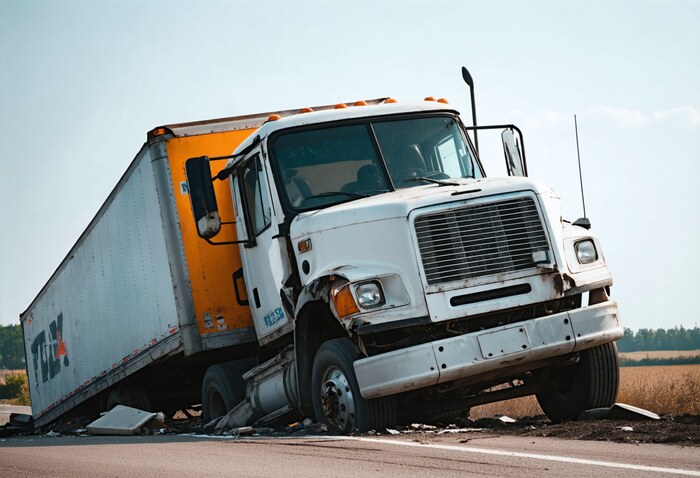
TL;DR: Yes, in certain cases, you can sue the truck driver personally if their actions were reckless or intentional. However, if they were working within their job scope, their employer’s insurance may be liable.
Key Highlights:
- Personal Liability: If the driver acted recklessly or intentionally (e.g., DUI), they may be personally liable.
- Employer Liability: If the driver was on duty, their employer’s insurance typically covers the damages.
- Insurance and Compensation: Suing the driver personally may be necessary when insurance coverage doesn’t fully compensate you.
- Legal Process: Legal action against the driver is complex and usually requires an experienced attorney.
- State Law: Georgia law can allow for both personal and vicarious liability depending on the circumstances.
Truck accidents account for thousands of fatalities and severe injuries each year, often leading to intricate legal battles over liability. In many cases, the trucking company bears financial responsibility, but what happens if the driver’s actions directly caused the crash? Negligence, reckless driving, or intentional misconduct can raise questions about personal liability.
If the driver’s actions played a direct role in the accident, you may have legal grounds to sue them personally. Understanding when this applies can help you determine the best course of action for seeking compensation.
Understanding Liability in Truck Accidents
Determining liability in truck accidents is a crucial first step. Georgia follows a modified comparative negligence system, which means that liability can be shared among the involved parties, including the truck driver, their employer, or other third parties.
When Can You Hold the Truck Driver Personally Liable?
You can sue a truck driver personally if their direct actions caused the accident. Examples include:
- Driving under the influence of drugs or alcohol.
- Texting or using a phone while driving.
- Violating traffic laws, such as running a red light or speeding.
- Falling asleep at the wheel due to fatigue.
In cases where the driver’s negligence is clear, they can be held accountable for their actions.
Employer Liability and Vicarious Liability
In many truck accidents, the employer may also bear responsibility under the concept of vicarious liability. If the truck driver was performing their job duties when the accident occurred, the trucking company may be liable for the damages. However, if the driver acted outside the scope of their employment (e.g., driving a company truck for personal use), personal liability may apply.
Challenges of Suing a Truck Driver Personally
While you can sue a truck driver personally, there are certain challenges to consider:
- Financial Limitations
Truck drivers may lack the personal financial resources to cover significant damages, such as extensive medical bills or lost wages. Employers often have larger insurance policies and assets to pay compensation. - Evidence Requirements
Establishing the driver’s negligence requires solid evidence, such as:- Police reports.
- Eyewitness testimony.
- Dashcam footage.
- Driving logs showing hours worked.
- Shared Liability
In some cases, both the driver and the employer share liability. Determining who to sue requires careful evaluation of the evidence.
Steps to Sue a Truck Driver Personally
If you decide to sue the truck driver personally, here are the steps to follow:
1. Gather Evidence
Collect all necessary documentation to prove the truck driver’s fault. This includes photos of the accident scene, medical records, and witness statements.
2. Consult a Lawyer
An experienced Atlanta truck accident lawyer can help assess the case, determine liability, and handle negotiations with insurance companies.
3. File a Claim
Your lawyer will file a claim against the truck driver, outlining the damages you seek, such as medical expenses, lost wages, and emotional distress.
4. Negotiate a Settlement
In many cases, the driver’s insurance company will negotiate a settlement. Ensure your lawyer reviews the terms to guarantee fair compensation.
5. Prepare for Trial
If a settlement cannot be reached, your lawyer will represent you in court to prove the truck driver’s negligence.
Damages You Can Recover
When suing a truck driver personally, you may be entitled to various types of compensation, including:
- Medical Expenses: Costs of hospital visits, surgeries, and therapy.
- Lost Wages: Reimbursement for time missed from work.
- Property Damage: Repair or replacement costs for your vehicle.
- Pain and Suffering: Compensation for physical pain and emotional distress.
- Punitive Damages: Additional damages meant to punish egregious negligence, such as drunk driving.
How Our Atlanta Truck Accident Lawyer Can Help You
Navigating the complexities of truck accident liability can be overwhelming. An experienced Atlanta truck accident lawyer can provide invaluable support by:
- Investigating the accident to determine fault.
- Gathering evidence to strengthen your claim.
- Negotiating with insurance companies for a fair settlement.
- Representing you in court if litigation becomes necessary.
If you’re unsure about the best course of action, don’t hesitate to contact us for free evaluation. We’ll guide you through the process and ensure your rights are protected.
Conclusions
Suing a truck driver personally is possible in specific scenarios, especially when their negligence caused the accident. However, pursuing a claim against the trucking company may offer better chances for compensation. To determine the best path for your case, consult an experienced truck accident lawyer who can evaluate your situation and provide tailored legal advice. For a personalized approach to your case, contact us for free evaluation and let us help you secure the justice and compensation you deserve.
